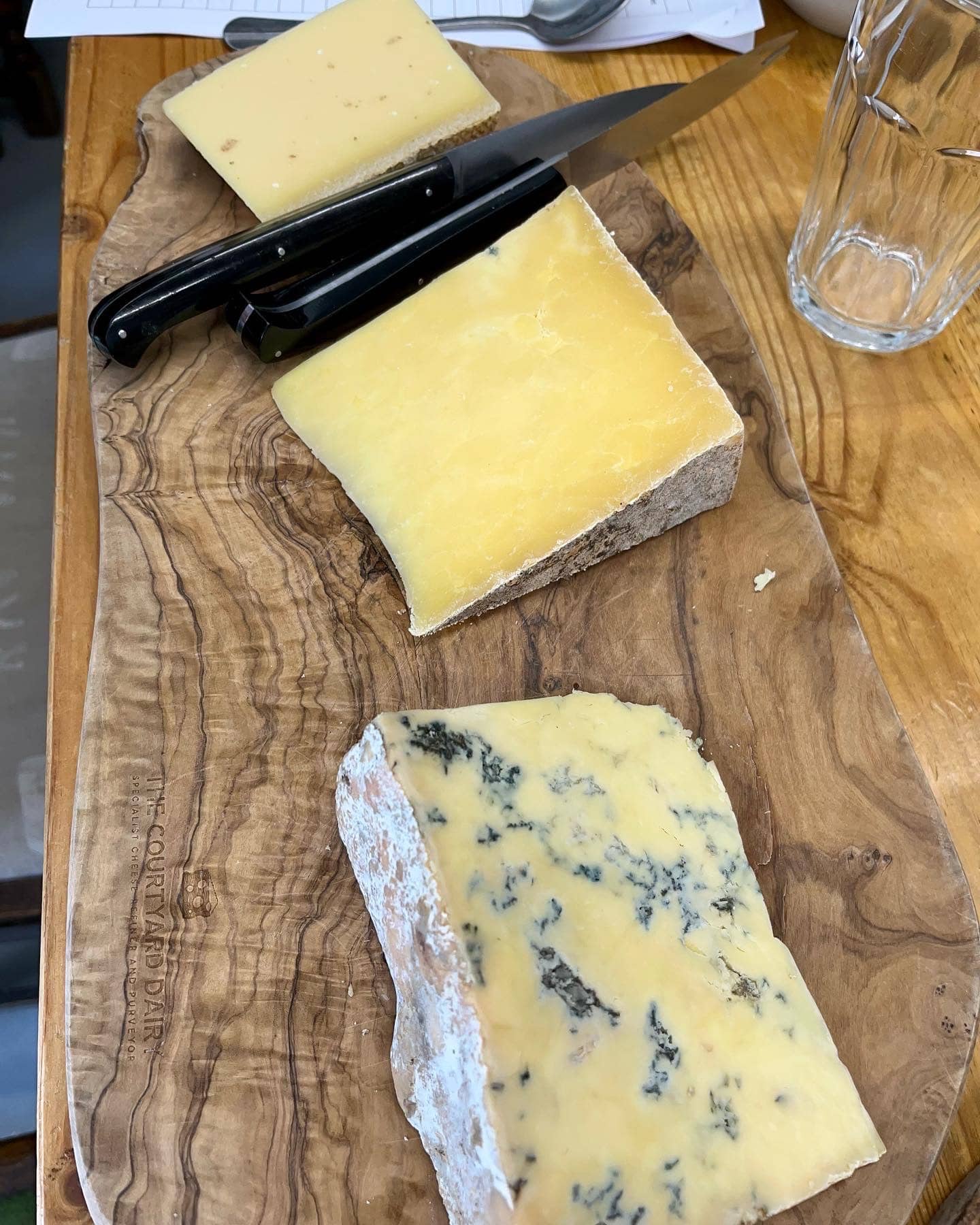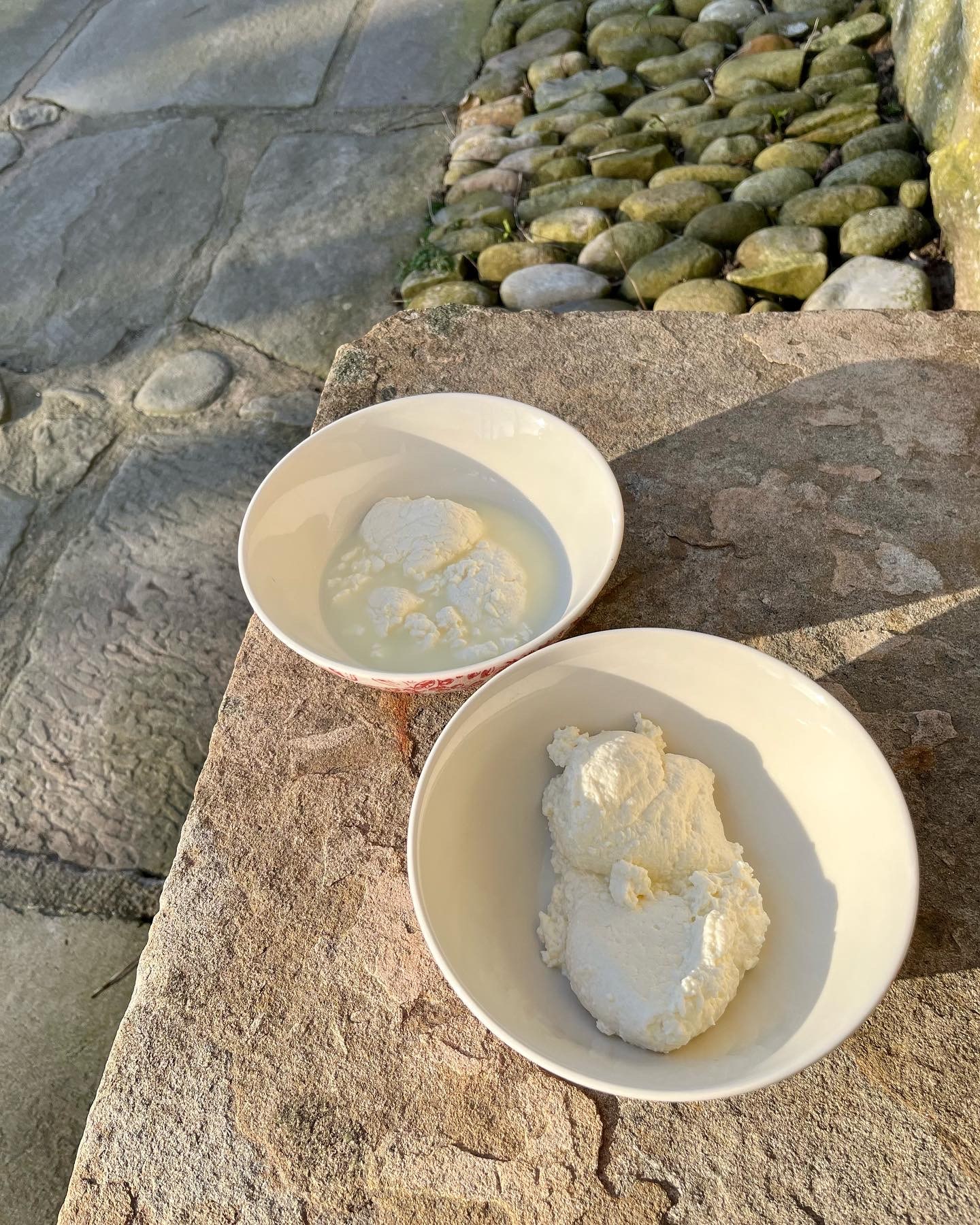Learning to make cheese at the Courtyard Dairy
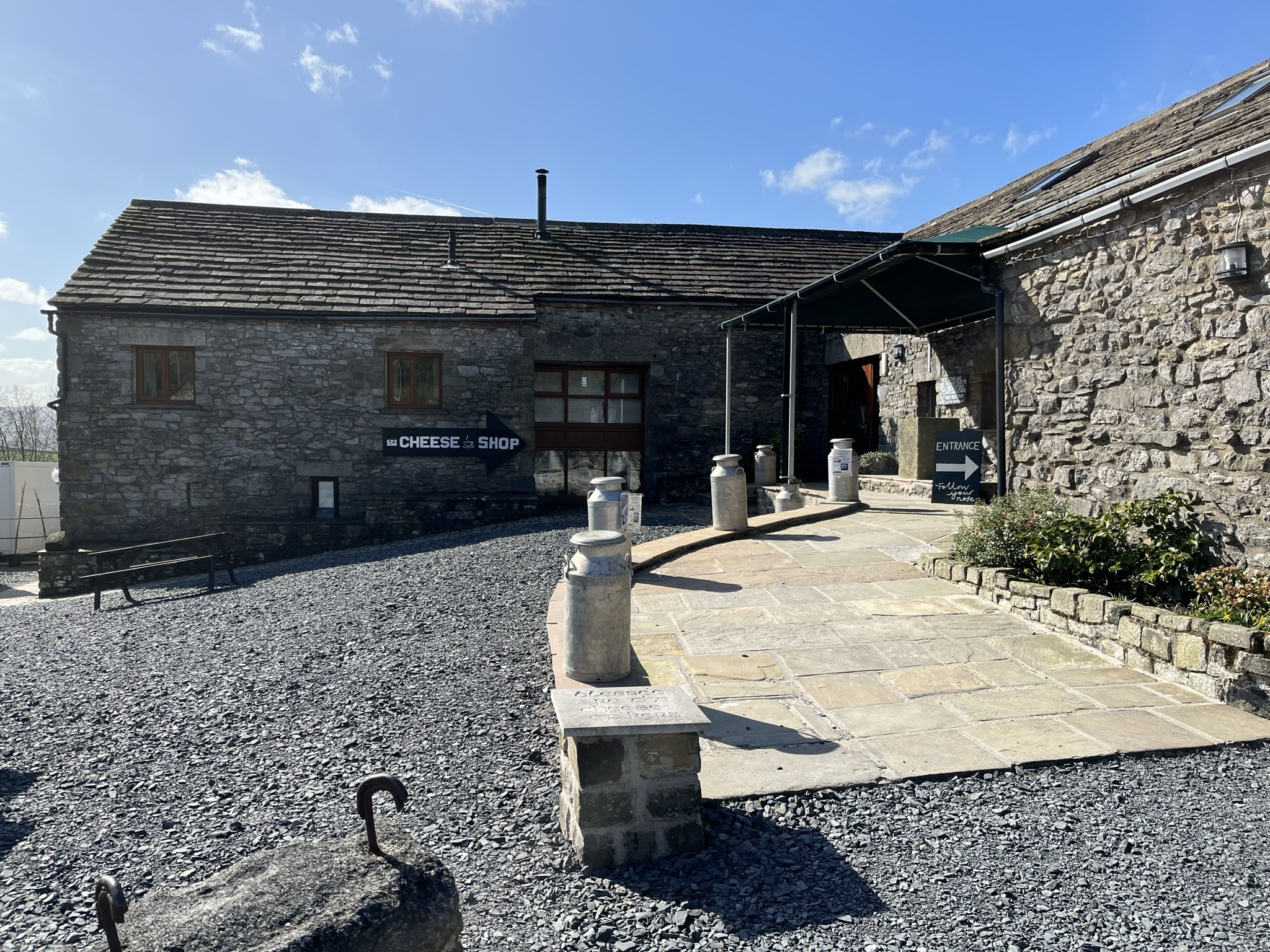
I’ve been making cheese at home for a while now and it has been, on the whole, fairly successful and very tasty. For my birthday I was gifted a cheese making course in North Yorkshire and it opened my eyes to new cheese making opportunities beyond the simple fresh cheese I had been making.
About the Courtyard Dairy
The Courtyard Dairy is an award-winning cheese shop near Settle in North Yorkshire. They won Cheesemonger of the Year at the World Cheese Awards in 2013.
Run by Andy and Kathy Swinscoe, they are great champions of small, independent, cheese making farmers and producers from across the UK. They run their cheese making courses every month, which you can book through their website. Andy leads the course and is passionate to teach people about traditional British farmhouse cheeses and methods so they don’t become extinct.
The cheese shop at the Courtyard Dairy is also very special. In fact I could’ve spent the entire day in there. The staff are incredibly knowledgeable and friendly. They will given you great advice on what cheese to buy based on your personal preferences and what’s great to eat right now. As well as selling the cheese, the Courtyard Dairy also mature the cheeses on site to ensure when you buy them they are at their absolute best. If you’re in the area, I really would encourage you to pay them a visit.
However, if North Yorkshire is a little far for you to travel, they also have a fabulous online cheese shop. They offer a monthly cheese subscription of some of the best cheeses available from their shop, as well as cheese selections for special events like St Patrick’s Day or Father’s Day.
Back in January I ordered their Burn’s Night selection of Scottish cheeses. I received four very different cheeses from across Scotland – Anster, St Andrew’s Cheddar, Strathearn and Lanark Blue. Each of the cheeses were delicious and had been aged to perfection at the Courtyard Dairy. They were easily some of the best cheeses I’ve tried over the last year – and I eat a lot of cheese.
They also offer online cheese tastings which I can’t wait to try. Sign up to their e-newsletter and they will contact you with regular cheese offers, including discounts on cheeses that are ripe and ready to eat.
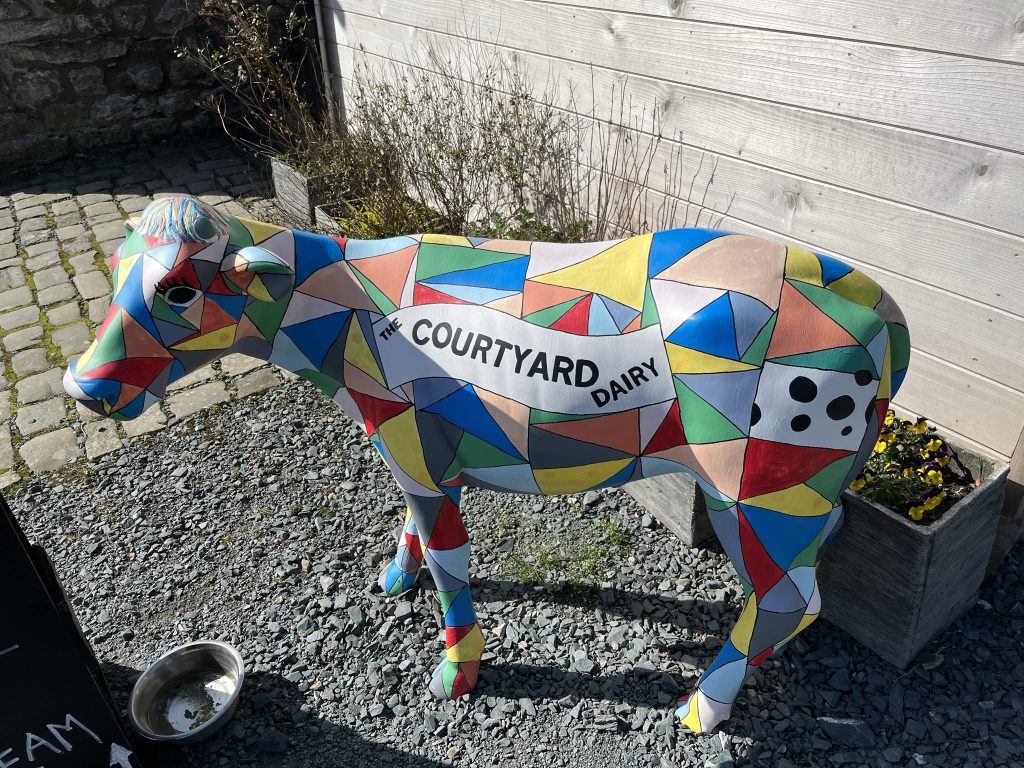
The cheese making course
We arrived at the dairy in the morning and headed straight to the lecture room where we were greeted by Andy and some of his team. While we were waiting for the milk in the cheese making room to be prepped, we spent the morning learning all about the fundamentals of cheese. Andy went through the basics principles of cheese making, the equipment needed and the different types of cheese that you can produce.
Later on in the morning we then went into the cheese making room. We got to make two different types of cheese, one lactic cheese that had acid added to it, and a hard cheese, like cheddar, that had rennet added to it. It was a really hands-on course and each of us got the opportunity to try out the different processes involved in cheese production. In the morning this involved draining the curd, then cutting the whey and ladling it into moulds. You can find out more about the basics of cheese making and the different ingredients that go into it in my previous cheese making blog post.
It was fascinating to learn how different factors can completely alter the cheese production process. We were the first group to make cheese in a month, so the cheese making room was a lot colder which mean the cheese took much longer to reach the acidity needed before we could move on to the next step. We learnt that other factors, such as the time of year, the difference in how the milk has been produced or what the animal has been grazing on, can also have a big impact on the cheese making process. This is why it is so important for cheese producers to record each step of the process each time they make a batch of cheese.
For lunch we were treated to six different types of cheeses, with delicious local accompaniments and homemade soup. We got to enjoy it sitting outside in the Spring sunshine with fantastic views overlooking the Yorkshire Dales, you couldn’t get a better setting.
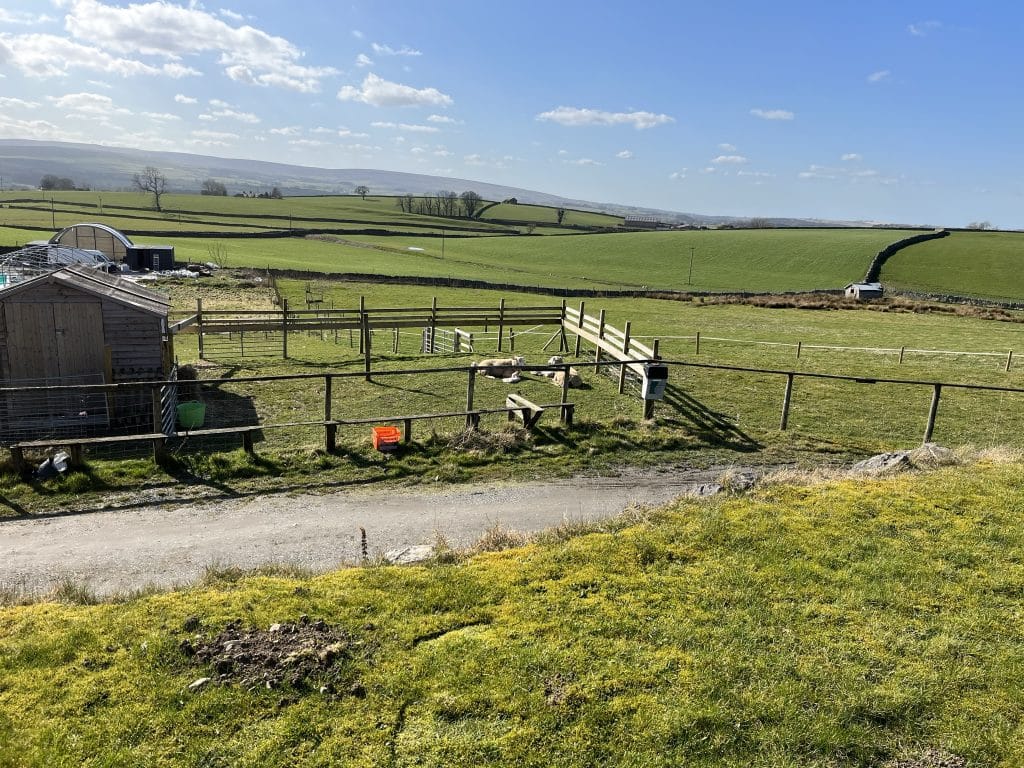
After lunch, we returned to the cheese making room to turn, mill and salt the hard cheese. We then packed it into moulds that were pressed to draw out even more moisture. The cheeses will be aged for three months and sent out to us when they’re ready. We also got to make fresh ricotta from the leftover whey (the liquid bi-product from the cheese making process) and got to take this home along with the fresh lactic cheese we had made that morning.
I had the best time at the Courtyard Dairy. I could’ve easily gone back the next day, done the course all over again, and learnt something completely new. I’ve made a few cheeses at home but this course took things to the next level and I’m really looking forward to putting the skills I’ve learnt into practice. It’s also given me the confidence and ideas to make something other than fresh cheese. I’m really excited to have a go at making some cheeses that are aged for a few weeks or even months.
You don’t have to be interested in becoming a professional cheese maker to attend the course. If you’re passionate about cheese, how it’s made and how you can support independent farms, dairies and cheese producers then this course is for you. I enjoyed it so much that I booked myself onto another cheese making course the next day. I’ll be learning to make cheese with the team from The Ethical Dairy in Castle Douglas later this month. I can’t wait.
